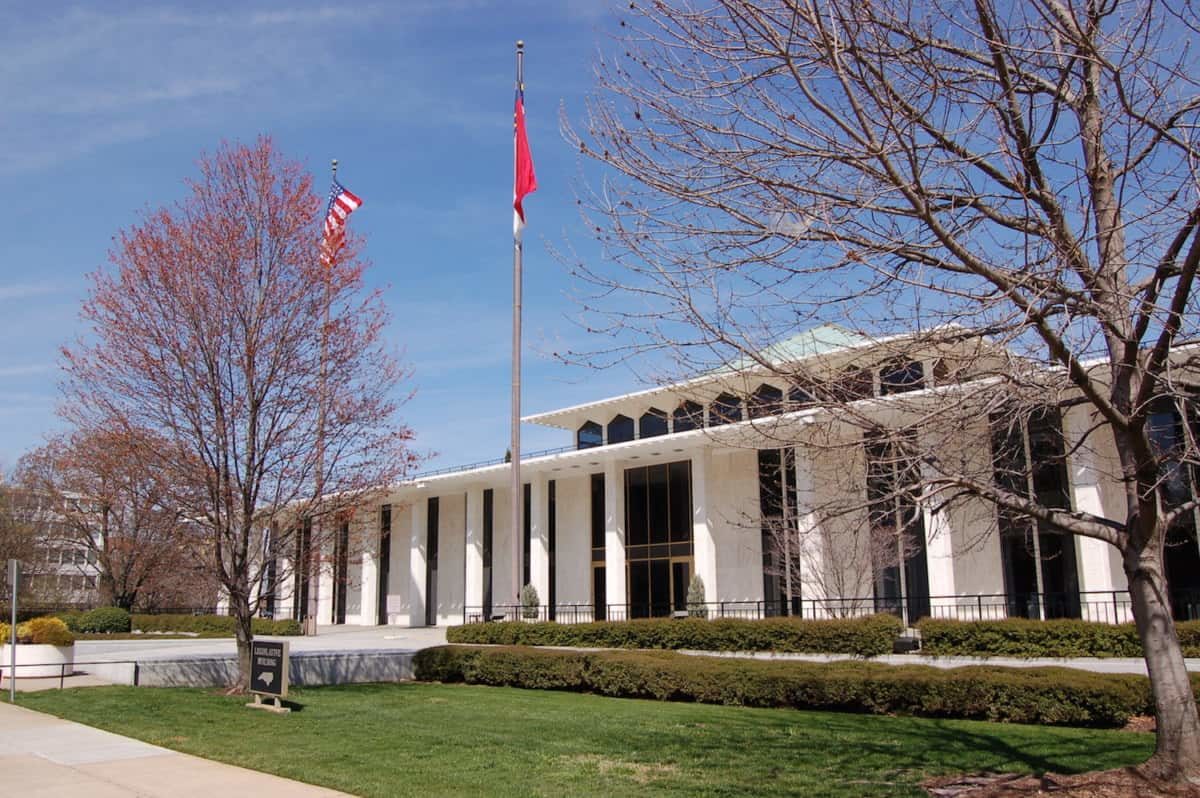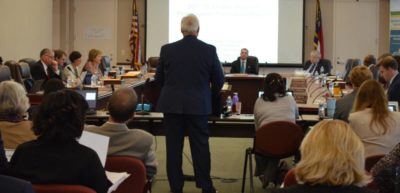

Update 2:24 p.m., October 22: Senate Bill 61 passed the Senate unanimously today and goes now to Governor Roy Cooper for his signature. He is expected to sign the bill.
Speaking about the bill, Sen. Jerry Tillman, R-Randolph, said: “You probably know that we have one of if not the best community college systems in America,” he said, adding later: “Every community is touched by a community college within traveling distance.”
Update 4:45 p.m., October 9: Senate Bill 61, which contains community college provisions from the budget, passed the full House with a unanimous vote today.
In a press release, House Speaker Tim Moore, R-Cleveland, talked about the importance of community colleges and the significance of passing this legislation.
“Community colleges are a primary driver helping North Carolinians fill the top-tier employment opportunities our economy is attracting this decade,” he said. “These campuses keep our workforce prepared for the cutting-edge jobs of tomorrow. This budget maintains our strong commitment to increased funding, capital projects, and innovative programs that will continue to build on their powerful success story.”
The bill moves now to the Senate, where it is likely to get easy passage. From there, it’s up to Gov. Roy Cooper to sign, which he is likely to do.
There is hope on the horizon for community college leaders anxious for a budget resolution. The House appropriations committee gave a favorable vote to a bill that includes the community college provisions in the budget passed by the General Assembly over the summer and subsequently vetoed by Gov. Roy Cooper.
The budget included funding for most of the priorities the community college system asked for, and the bill that went through the committee today includes everything that was in the community college portion of the budget except salary increases and capital funding.
Perhaps most importantly for community colleges, the bill includes short-term workforce funding. The way community colleges are currently funded, there is a disconnect between how much funding they receive for curriculum programs compared to the short-term, workforce-related programs, with the latter getting shortchanged. Community colleges asked for extra funding to help the system reach parity. The bill gives about $12 million in both years for the program.
“This includes the workforce training. That is the most important thing to the community colleges, and it will be a separate line item, which is what your people back home are looking for,” said Rep. Linda Johnson, R-Cabarrus, senior chair of the House Appropriations Committee.
As for community college salary increases, that was handled in a separate bill back in August. But it was pulled from the House calendar before it could get a full vote. The last anybody heard, House Speaker Tim Moore, R-Cleveland was saying it was likely to come back up in a conference bill.
Another bill, signed by Cooper in late September, addressed another community college priority: money to offset FTE losses at community colleges hit by Hurricane Florence. That bill includes $6.4 million for this purpose. In addition, $1.5 million provided by the state to community colleges last year for buildings damaged by Hurricane Florence was also reallocated in that same bill to help offset FTE losses associated with hurricane-related enrollment declines.
Today’s bill passed with no debate, and you can expect to see it continue moving through the General Assembly this week. It should be up in the full House for a vote Wednesday.
Today’s committee continues the General Assembly’s strategy of bypassing Gov. Cooper’s veto by running standalone bills on relatively non-controversial portions of the budget. While the House has passed an override of the veto, the Senate has not yet had a vote.


